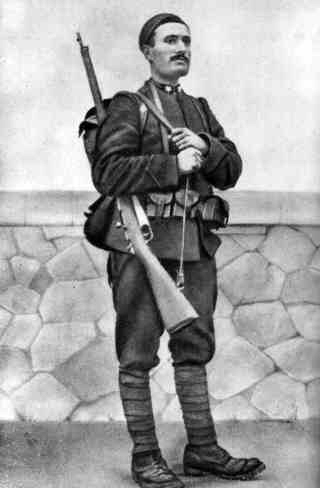Italy's Foreign Policy
Mussolini was under pressure to ensure that Italy’s foreign policy was strong enough to display to the world that Italy was a major European powerhouse. He saw Italy conquering foreign territories as the ultimate sign of power, a belief which led to the invasion of Abyssinia.
Mussolini needed to ensure that Italy’s foreign policy was strong enough to display to the world exactly what a powerhouse Italy was becoming. He saw the capturing of foreign territories as the way to ensure this, which was the reason behind the decision to attack Abyssinia.
Following the announcement of the Treaty of Versailles, Mussolini, along with many other Italians, felt unhappy with the pronouncement. He thought that his country was the most powerful out of all the Mediterranean countries and therefore deserved a realm of influence in the Mediterranean Sea. Britain, however, effectively held this power as a result of its naval strongholds in Cyprus, Gibraltar and Malta and its joint control over the Suez Canal. Mussolini set out his plans to make Italy a superpower, saying: “My objective is simple. I want to make Italy great, respected and feared. The Twentieth Century will be a century of Italian power.”

In terms of other European powers, Germany was not seen as a strong force when Mussolini came to power in 1922. Still recovering from World War One, along with Italy, Germany had yet to receive the attentions of Hitler’s push for power. As Italy was not strong at that time, it did not wish to upset the rest of Europe in the years between 1922 and 1933, however, all this was to change in 1933, when Hitler came to power in Germany.
Mussolini viewed Hitler as a potential rival in the bid to head up the strongest power in Europe, particularly because Hitler had made public his desire for unification with Austria, a move that was banned by Versailles. In June of 1933, Mussolini, in a bid to remain positive relations with Britain and France as well as Germany, invited representatives to a meeting. At the meeting, the Four Power Pact was signed, which was, in Mussolini’s eyes, the signal of the growing power held by Italy as the agreement had been signed there.
The following year, Mussolini travelled to Venice to meet with Hitler. The two did not see eye-to-eye at the meeting and Mussolini even termed Hitler a “silly little monkey” following the event. Mussolini wore his military uniform to the meeting, in order to send a message to Hitler, who was wearing civilian dress. Relations between the two leaders became progressively worse when the leader of Austria, Engelbert Dollfuss, was killed by Austrian Nazis on 25 July, 1934 as part of a failed coup attempt.
See also: Italy and Germany 1936 to 1940
MLA Citation/Reference
"Italy's Foreign Policy". HistoryLearning.com. 2024. Web.
